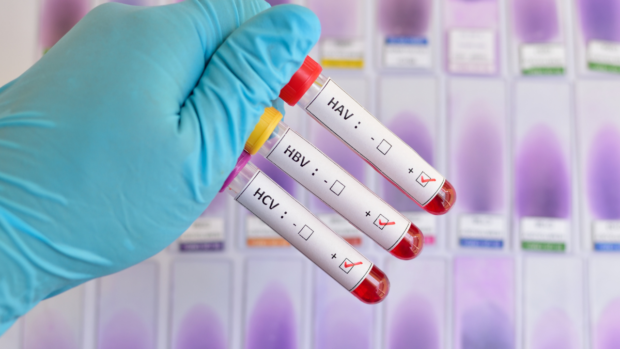WHO studies whether COVID-19 has role in child hepatitis mystery

Hepatitis blood samples | INQUIRER.net stock image
GENEVA—The World Health Organization said Tuesday that 348 probable cases of hepatitis of unknown origin had been identified, as studies into the potential role of adenovirus and Covid-19 infection gather pace.
The WHO said the leading hypotheses remain those involving adenovirus.
Cases have been reported in 20 countries, with 70 additional cases from a further 13 countries which are pending classification as tests await completion.
Only six countries are reporting more than five cases, with more than 160 being reported in Britain.
“Over the last week, there’s been some important progress with the further investigations and some refinements of the working hypotheses,” Philippa Easterbrook, from the WHO’s global hepatitis program, told a press conference.
She said Britain had been coordinating a comprehensive set of studies looking at the genetics of the children affected, their immune response, viruses and further epidemiological studies.
The WHO was first informed on April 5 of 10 unexplained hepatitis cases in Scotland, detected in children under the age of 10.
The US Centers for Disease Control and Prevention said Friday it was investigating 109 such cases, including five reported deaths.
“At present, the leading hypotheses remain those which involve adenovirus — with also still an important consideration about the role of Covid as well, either as a co-infection or a past infection,” Easterbrook said.
Further testing in the past week confirmed that around 70 percent of the cases tested positive for adenovirus, with sub-type 41 — normally associated with gastroenteritis — the prevalent sub-type, she added.
Testing has also shown that around 18 percent of cases actively tested positive for Covid-19.
“The big focus over the next week is looking at serological testing for previous exposure and infections with Covid,” said Easterbrook.
Honing down on adenovirus
The scientist said that within the week, there should be data from Britain on a case control study comparing whether the detection rate of adenovirus differs from that in other hospitalised children.
“That will really help hone down whether adeno is just an incidental infection that’s been detected, or there is a causal or likely causal link,” Easterbrook said.
She said that microscopic studies of liver samples and biopsies had shown none of the typical features that might be expected with a liver inflammation due to adenovirus.
Adenoviruses are commonly spread by close personal contact, respiratory droplets and surfaces.
They are generally known to cause respiratory symptoms, conjunctivitis or even digestive disorders.
The WHO refers to the outbreak of severe liver inflammations as acute hepatitis of unknown origin among young children.
Three children in Indonesia have died from the disease.
Some cases have caused liver failure and required transplants.
Many cases reported jaundice, and gastrointestinal symptoms including abdominal pain, diarrhoea and vomiting.
After the discovery of the first 169 cases, the WHO said common viruses that cause acute viral hepatitis (hepatitis viruses A, B, C, D and E) were not detected in any of them.
RELATED STORIES
Indonesia detects 15 cases of severe hepatitis after 3 child deaths
Children in more countries suffer mystery hepatitis
Understanding people with liver disease
Liver cancer, diseases: A silent epidemic in PH
For more news about the novel coronavirus click here.
What you need to know about Coronavirus.
For more information on COVID-19, call the DOH Hotline: (02) 86517800 local 1149/1150.
The Inquirer Foundation supports our healthcare frontliners and is still accepting cash donations to be deposited at Banco de Oro (BDO) current account #007960018860 or donate through PayMaya using this link.














